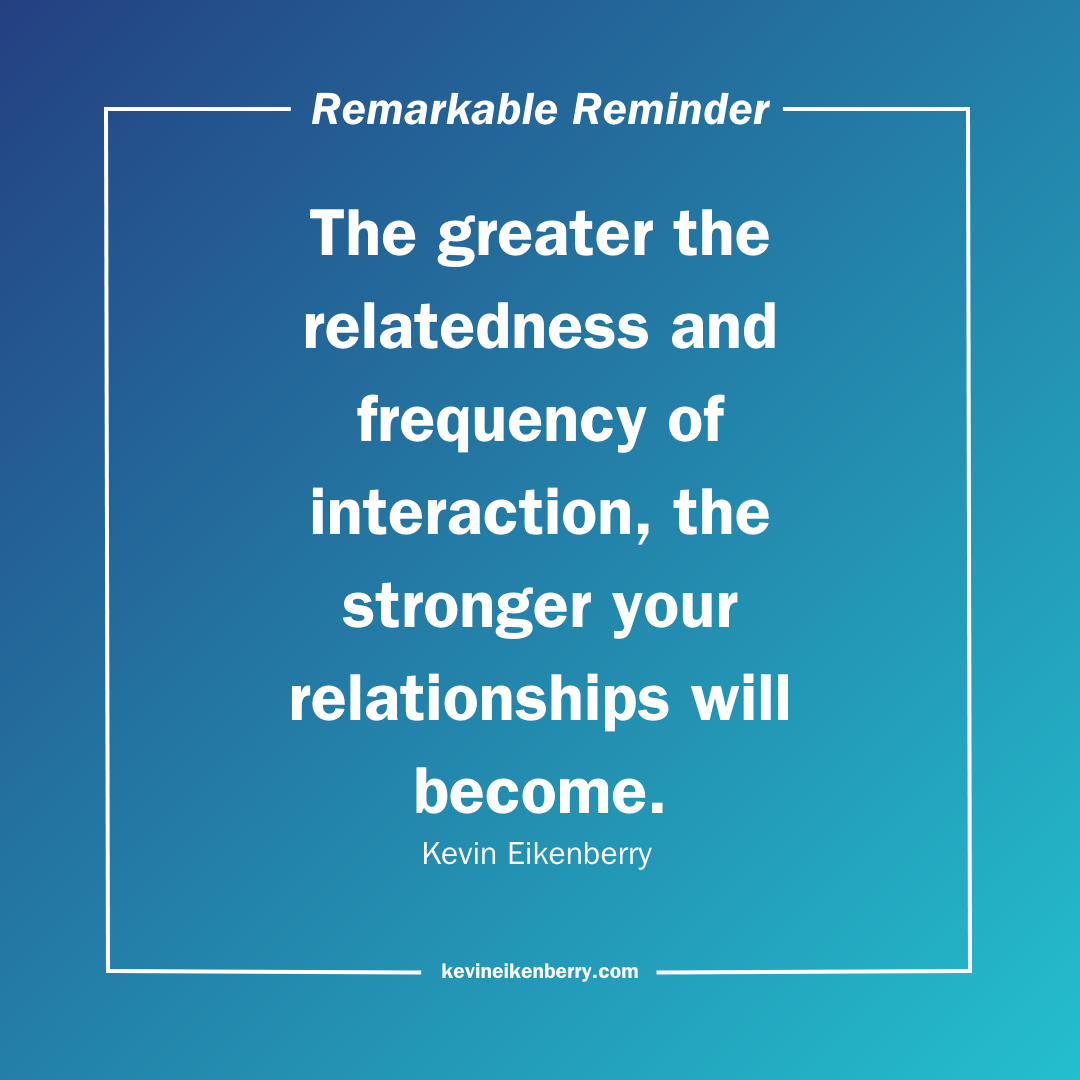In every aspect of life, relationships are fundamental. Whether in our personal lives or in the workplace, the strength of our connections with others significantly impacts our success, satisfaction, and overall well-being. However, building strong relationships isn't always straightforward, especially in today's increasingly remote and digital world. The challenges of maintaining meaningful connections when we're not physically present are real, but they are not insurmountable.
In this post, we will explore two crucial elements that can help you build and sustain strong relationships—whether you're leading a team from a distance or nurturing connections in your personal life. These two factors are relatedness and interaction.
The Importance of Relatedness
Relatedness is about feeling connected to others through shared interests, values, and experiences. It’s not necessary to have everything in common with someone to build a strong relationship. Instead, it’s about understanding and appreciating the things that matter to them. When you recognize and show interest in what others care about, even if those things aren't personally significant to you, you foster a sense of connection.
For example, you might not share a colleague's passion for a particular hobby, but by asking about it and showing genuine interest in their experiences, you build a bridge of understanding and mutual respect. The more relatedness you cultivate, the stronger the foundation of your relationship will be. This principle applies both in professional settings and in personal relationships.
The Power of Interaction
While relatedness forms the foundation, interaction is what strengthens and maintains that foundation over time. Interaction is more than just the routine exchanges of work-related information. It involves engaging in meaningful conversations that go beyond the surface level, such as discussing personal interests, sharing experiences, or simply checking in on how someone is doing.
In a work context, especially when working remotely, it can be easy to fall into the trap of only communicating about tasks, deadlines, and projects. However, to build strong relationships, it's essential to make time for conversations that aren’t strictly business-related. These interactions are where trust is built, and where you get to know your colleagues as individuals rather than just co-workers.
Applying Relatedness and Interaction in a Remote Environment
Building relatedness and facilitating interaction can be particularly challenging in remote work environments, where opportunities for spontaneous conversations and casual interactions are limited. However, it’s precisely in these settings that these two elements become even more critical.
Leaders and team members alike need to be intentional about creating opportunities for relatedness and interaction. This might mean scheduling regular check-ins that aren’t solely focused on work, or setting aside time during meetings to discuss non-work topics. It could also involve finding creative ways to share experiences, such as virtual coffee breaks or team-building activities that emphasize personal connection.
The goal is to make these interactions a priority, not an afterthought. The stronger the relatedness and the more frequent the interaction, the more resilient and effective your relationships will be, even across distances.
Strong relationships are essential for effective teamwork, collaboration, and overall success—whether you're working in an office or remotely. By focusing on relatedness and interaction, you can create and maintain strong, meaningful connections with others, regardless of the physical distance that may separate you.
Follow The Remarkable Leadership Podcast


0 comments